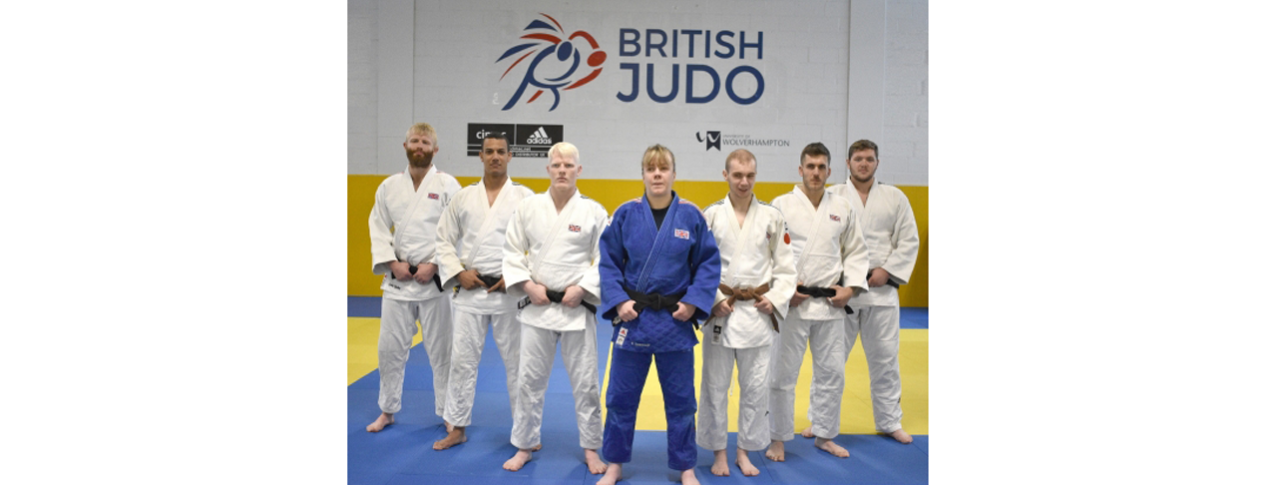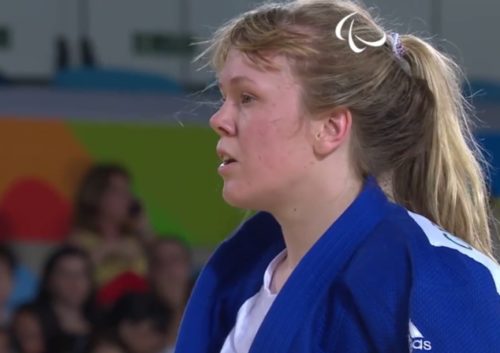Natalie Greenhough: “There are so many ways for VI people to get active” #MakeSportAccessible
Natalie Greenhough is 27 years old and volunteers with Black Country Sight Loss Council. She talks to us about her journey with sports, her love of judo and her passion to #MakeSportAccessible in her capacity as a Black Country Sight Loss Council member.
Natalie recently completed her degree in Sport and Exercise Science at the University of Wolverhampton. She is also a Paralympic judoka and trained at the Judo Centre of Excellence in Warsaw at Wolverhampton university and won silver at the Visual Impaired German Open in Heidelberg in 2016. Natalie is interested in the accessibility of physical activity for blind and visually impaired people in the UK—In fact, this was the topic of her dissertation.
Through the course of her research, she found that the primary obstacles to blind and partially sighted people to getting involved in physical activity was location, knowledge of what is available, inaccessible facilities, and the public’s general lack of awareness when it comes to the spectrum of visual impairment.
Natalie says: ” I find the issue often is that no one takes into account that the needs of one person may differ from another—Every one person’s needs are unique.”
Growing up, Natalie’s experience accessing sport at her mainstream school was far from adequate. Natalie was left without support in her PE lessons, and the school did not have adequate equipment.
Things began to turn around when Natalie joined an under 16 VI children’s activity group. For the first time, she was able to participate in inclusive sporting activities.
How did you become involved in judo?
My mum encouraged me to come along to my little brother’s judo club one day —his coach was accessibility trained and adapted everything to participate fully.
I just got on the mat. It was that simple. I felt included, and I felt involved.
I didn’t feel like people looked at me as Natalie with a visual impairment. I was just Natalie that did judo. It then all spiralled from there!
What is the most significant factor for #MakingSportAccessible to you?
Having a coach who is prepared to take the time to work with me on a one to one basis made all the difference. Receiving encouragement to participate as much as possible and being in an environment that was inclusive and welcoming.
“Knowing that a gym or leisure provider understands your needs, helps increase your confidence and encourages you to get more involved.”
Why did you get involved with the Black Country Sight Loss Council?
I joined the Black Country Sight Loss Council because I thought it would be an excellent opportunity to gain work experience and help bridge my way following my degree.
I am passionate about improving the experience of visually impaired people. I’m excited to be in a position where I can affect change, apply my knowledge from my degree and enhance the experience of visually impaired people in their access to sport and physical activity.
Mostly, I really would like to raise the profile of visually impaired people being physically active and of the wide breadth of competitive VI sports that are out there.
It’s often forgotten that visual impairment qualifies as a disability in the Paralympic Games. When people think of the Paralympics, they think of Ellie Simmons or Johnny Peacock.
In reality, there are so many VI competitive sports, from athletics, tandem, five aside football through to goalball, and then judo—the only martial art in the Paralympic Games!
And it’s specifically visually impaired judo in the Paralympic Games!
There are so many ways for VI people to get active! I’m not a runner. I wouldn’t say I like running. I’ve never liked it. Going for a run or going to the gym aren’t the only ways to be physically active.
Accessible Sports Toolkit with UK Coaching
UK Coaching, in partnership with Thomas Pocklington Trust, has created a toolkit for gym and leisure operators to support people with a visual impairment.
The toolkit is central to Sight Loss Councils’ work to #MakeHealthAccessible around the country.
We are asking leisure operators to encourage all their staff – from the front desk to their personal trainers – to get engaged with this training programme and make sport accessible in their venues.
Natalie says:
“Leisure providers should be made aware that there are visually impaired people in their area that want to be active but do not feel welcome. The Accessible Sports Toolkit can equip gyms and leisure providers to become more accessible to blind and partially sighted people.”
Feeling inspired?
Want to campaign for more accessible services for blind and partially sighted people in your area? Influence positive change by volunteering for our Sight Loss Council.
Publication date: 14 February 2022


